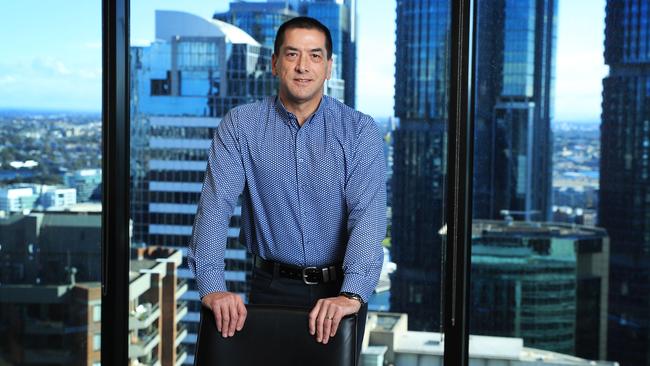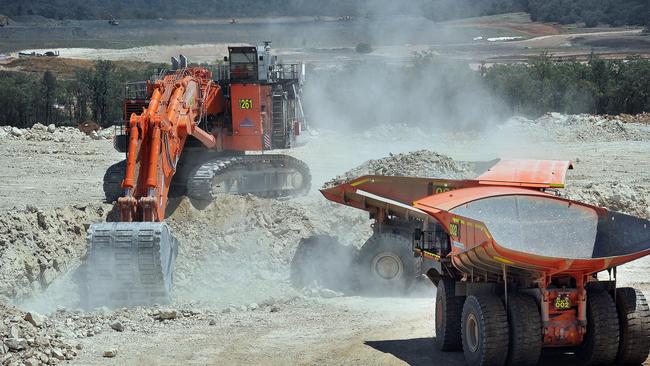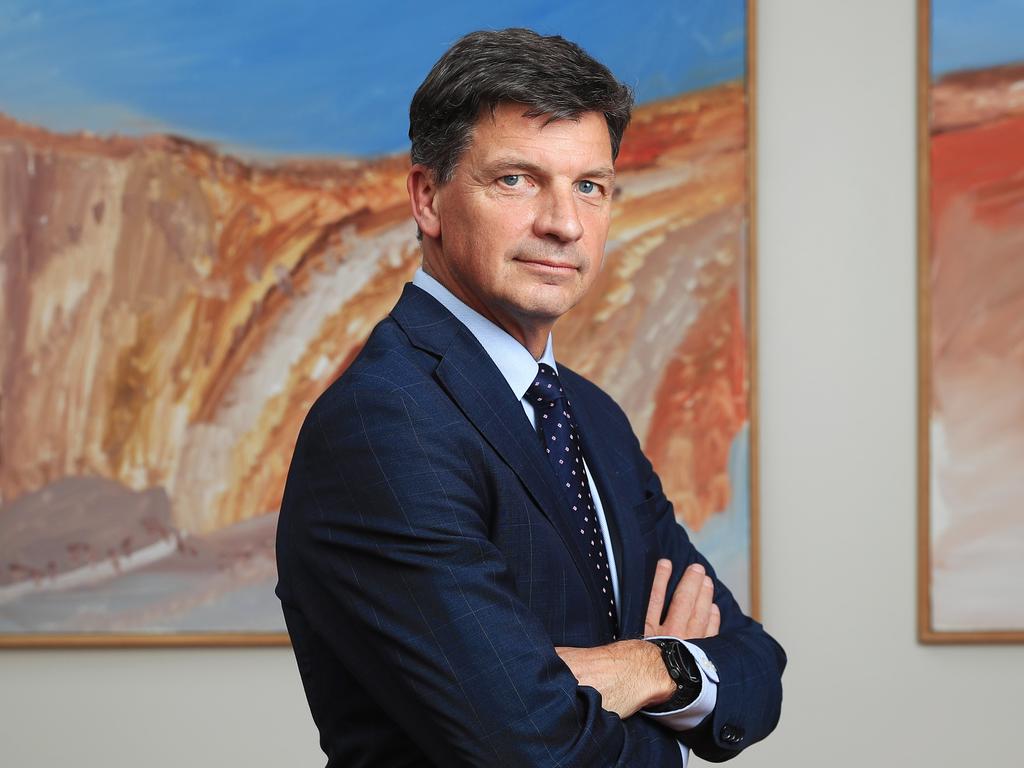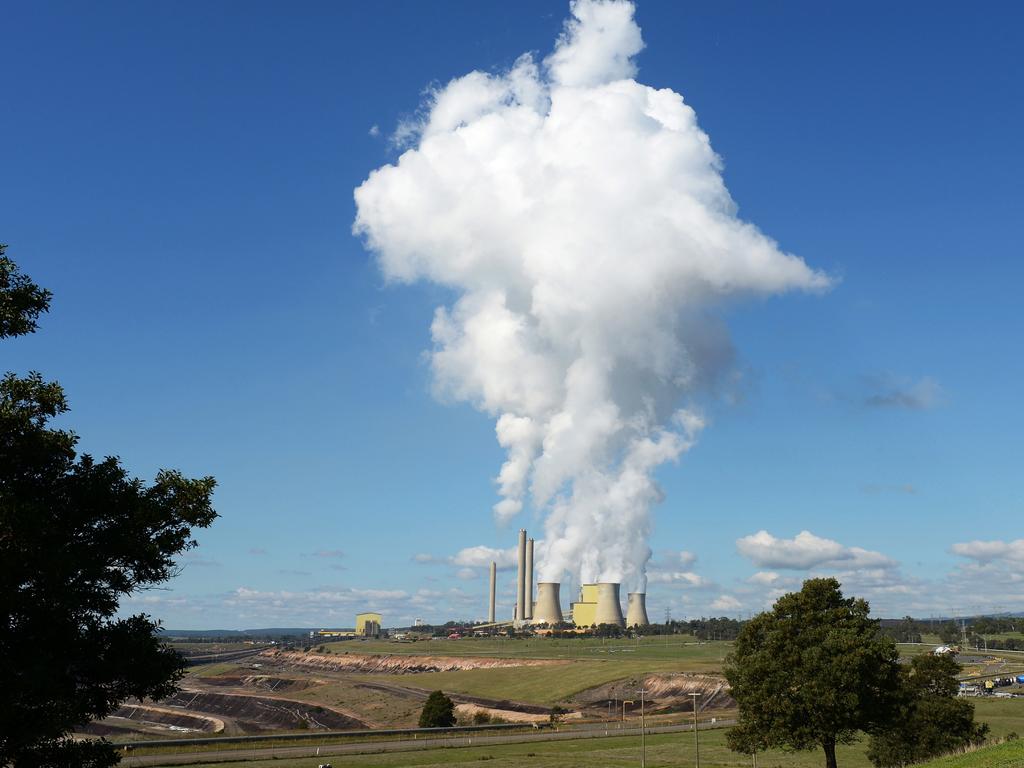We’re helping cut carbon emissions, claims Whitehaven CEO Paul Flynn
As the Olympic cauldron is lit in Tokyo, think about this. Every single day, 40 minutes of Japan’s entire power generation comes from one Australian company.

As the Olympic cauldron is lit in Tokyo, think about this. Every single day, 40 minutes of Japan’s entire power generation comes from one Australian company.
The company is Whitehaven Coal. CEO Paul Flynn remembers being told the statistic by a customer on a trip to Japan with chairman Mark Vaile. The former trade minister naturally also met with METI, the Japanese ministry for the economy, trade and industry.
“That’s very affirming of the mission that you are on,” Flynn says. “And you are contributing to their emissions reduction pathway.
“They tell you this, because they have got it included in their transition plans, the continued consumption of coal and the best use of technology.”
An Australian coal company helping the world to reduce emissions? That is quite a message in the current zero-tolerance carbon environment.
Whitehaven mines high quality thermal and metallurgical coal for steelmaking in NSW for export to Japan, South Korea, Taiwan and India.
Much has changed since February 2017 when then Treasurer Scott Morrison had the temerity to bring a lump of coal into parliament. Two of Australia’s big four banks have withdrawn support for Whitehaven and in a recent court case a judge ruled that the federal Environment Minister must now take into account the effect of CO2 emissions on the health of children when approving projects.
Despite all this, Whitehaven shares have shot up 30 per cent in 2021. Market demand has driven the thermal coal price to a 10-year high of over $140 a tonne.
Whitehaven’s fourth quarter trading update reflected a tough six months at one of its mines at Narrabri where it hit faulted ground and had to settle for lower prices there. The next 12 months should see production back to normal. “At these sorts of prices, it’s going to be a significantly cash-generative year ahead of us,” Flynn says.

Running a coal company in Australia today involves navigating a minefield of activism and politics. The latest threat for Whitehaven concerns its Vickery mine expansion, one of three growth projects.
Last year, a group of teenagers took court action calling for an injunction to stop the federal Environment Minister approving the Vickery expansion under the Environment Protection and Biodiversity Conservation Act.
The judge dismissed the case, but he also took the opportunity in his judgment to introduce a new duty of care for the minister concerning carbon emissions: any green-lighting of projects must not cause harm to children (personal injury or death).
The judgment could have major implications. “Everybody I speak to says ‘well, that’s going to be a problem for any project that has a greenhouse gas profile of any sort’,” says Flynn. “Badgerys Creek, for instance is going to get caught by that, agricultural developments, because farming livestock has quite a significant greenhouse gas footprint. It’s going to trap lots of projects.”
The state government will appeal the ruling and Flynn is still expecting a decision on the Vickery extension by August 30.
The daily frustration for the Whitehaven chief is that climate activism is so binary. Coal is bad. Renewables are good. Debate about just how green wind, solar and batteries really are is embryonic, but carbon emissions are a global issue.
Flynn argues that Whitehaven is helping to drive the response to climate change. In the developing world coal is meeting a desperate need for energy security. In Southeast Asia, the average age of a coal-fired power station is 12 years and more are being built. And if Whitehaven’s coal was pulled, it would be replaced by dirtier coal from Russia or Indonesia, emitting far more CO2.
In one sense, he says, Whitehaven is in the emissions reduction business. “We only sell coal to signatories of the Paris Accord. We only fuel power stations which are HELE quality (high-efficiency, low-emissions). Our whole business from the thermal coal side in particular is assisting our customers’ countries in their Paris commitments. If we didn’t do that, a substitute product would be there.”
If anything, Flynn sees activism working against responsible stewardship of coal and a smooth transition. Glencore chief Ivan Glasenberg made the same point after BHP offloaded assets to him, having a go at the Big Australian for not being part of the climate solution.
“I don’t think Ivan was alone in making that comment,” says Flynn. “Many of us have remarked to BHP directly ourselves that if you were really being true to your climate change concerns and principles, you would close that site, not sell it. And you can imagine the response you got from the person sitting opposite you when you said that.
“The responsible thing to do is to run it well. And to tidy up and clean after yourself after you’re done as most responsible mining companies do. But when you are faced with activist parties pressuring you, your board, it’s easier to avoid these question rather than actually address them head on.” In June, anti-coal activism forced Flynn’s chair Mark Vaile to give up his new role as Chancellor of Newcastle University.
“It’s just a four-letter word and it was easy to rally a bunch of dissenters,” says Flynn. “I think the university has harmed itself along the way by not taking on someone with expertise from a trade perspective and his experience in Asia in particular, where a lot of our education export dollars are earned.”
Jobs and wealth creation from coal have split Labor and the Liberals. Whitehaven has invested over $2bn in northwestern NSW over five years and has a 3000-strong workforce. Coal is the largest single export in the state.
“Obviously we’ve got a lot of friends from both sides of the divide momentarily at a federal level it would seem. Everybody wants to be coal’s friend or profess their undying love for coal at the moment,” quips Flynn.
Far less friendly are the domestic banks, which in the past helped fund Whitehaven. CBA and ANZ are no longer part of the miner’s lending facility and both NAB and Westpac will reduce their exposure to coal by 2030.
Appearing before a Senate committee last month, Flynn didn’t hold back. He questioned the motivation of banks beyond buckling to activist pressure.
He called for the government’s taxpayer-funded bank deposit guarantee to be linked to willingness to support export industries like coal, using a regional or national interest test.
“Of course there is also the obvious anomaly of withdrawing funding support for coal companies but continuing to profit from the mortgages that our employees’ high-paying jobs sustain,” he told the committee.
Interestingly, institutional presence on the Whitehaven share register is at its highest level, in part, says Flynn, because of the increasing sophistication of the ESG dialogue at the big investor level.
“You meet with the portfolio manager and then you meet with the ESG team with each individual investor. Now that’s a lot of extra work, but that’s OK if that is what is necessary to keep people engaged and to understand the broader propositions. Let’s not fixate on CO2 emissions only. That’s a piece of the puzzle, don’t get me wrong, but sustainability is a much, much broader concept.”





To join the conversation, please log in. Don't have an account? Register
Join the conversation, you are commenting as Logout